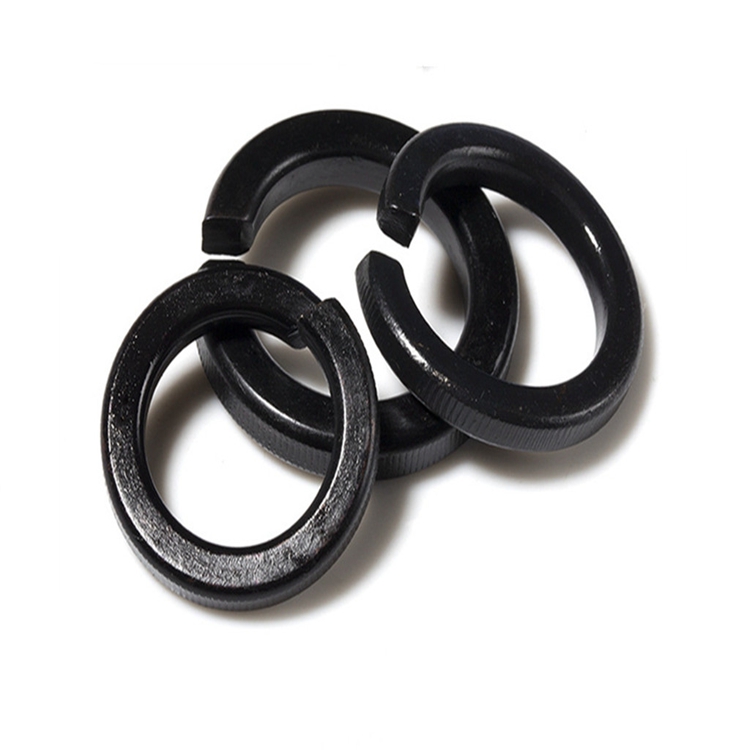Rail Bolt Manufacturing Companies and Their Production Processes for High-Quality Fasteners
Desemba . 20, 2024 08:50 Back to list
Rail Bolt Manufacturing Companies and Their Production Processes for High-Quality Fasteners
The Importance of Rail Bolts in Modern Manufacturing
Rail transport is a vital part of the global logistics and transportation infrastructure. It connects cities and regions, facilitating the movement of goods and people more efficiently than many other modes of transport. At the heart of this system lies a crucial component — rail bolts. These seemingly simple fasteners play a significant role in ensuring the safety and stability of railway tracks, making rail bolt factories essential in the manufacturing process.
Understanding Rail Bolts
Rail bolts are specialized fasteners used to secure rail tracks to wooden or concrete sleepers (also referred to as ties). They come in various sizes and designs, but their primary function remains the same to hold the rail in place, preventing movement caused by factors such as thermal expansion, train vibrations, and environmental changes.
The manufacturing of rail bolts requires precision and adherence to strict safety standards. Given the loads that trains place on tracks, rail bolts must be manufactured to withstand significant tension and shear forces. Factors such as material choice, heat treatment processes, and surface finishes are all crucial in determining the strength and durability of the final product.
The Manufacturing Process
Rail bolt factories employ advanced technologies and machinery to produce these critical components. The process generally begins with the selection of raw materials, predominantly high-strength carbon steel, which is chosen for its load-bearing capabilities. After procuring the raw material, the sequence of manufacturing begins
1. Cutting and Shaping The steel is cut into lengths and subsequently shaped into bolt forms using forging methods. This step is essential to achieve the desired mechanical properties. 2. Heat Treatment Following shaping, bolts undergo heat treatment to enhance their strength and hardness. This process, which can involve quenching and tempering, ensures that the bolts meet the rigorous demands of rail service.
3. Surface Finishing Proper finishing is critical for bolting systems exposed to the environment. Factory processes may include galvanization, coating, or other treatments to prevent rust and corrosion, thus enhancing longevity.
rail bolts factories

4. Quality Control Before reaching the market, each batch of rail bolts undergoes rigorous testing for tensile strength, dimensional accuracy, and surface integrity. This quality control step is vital to ensure that every bolt can perform safely under the stress of railway use.
The Role of Technology
In recent years, technological advancements have greatly improved rail bolt manufacturing processes. Automated machines and robotics have streamlined production, reducing lead times and minimizing human error. Advanced quality control systems, including computer-aided inspection processes, allow for real-time monitoring and adjustment, further enhancing product reliability.
Moreover, incorporating Industry 4.0 principles — such as the Internet of Things (IoT) — enables factories to collect data on production processes, leading to continuous improvements and optimization. For instance, predictive maintenance of machinery can reduce downtime and increase efficiency, thereby ensuring that the supply of rail bolts meets demand.
Environmental Considerations
With growing awareness of environmental issues, rail bolt factories are also adapting their processes to minimize their ecological impact. This involves implementing sustainable practices such as recycling scrap materials, reducing energy consumption, and utilizing eco-friendly coatings. By adopting these practices, manufacturers not only comply with regulations but also appeal to environmentally conscious customers.
Conclusion
The importance of rail bolts in the railway industry cannot be overstated. They are fundamental components that ensure the safety and efficiency of rail transport, and their reliable production is paramount. Rail bolt factories, leveraging advanced technologies and sustainable practices, are critical to meeting the growing demands of an ever-expanding rail network. As global rail infrastructure continues to evolve, the role of rail bolt manufacturers will remain essential in supporting safe, dependable, and efficient travel and transport systems worldwide. The future of rail transport relies not just on innovation and infrastructure but also on the steadfast strength of its components — starting with the humble rail bolt.
Latest news
-
Reliable Axle Nuts Supplier | Quality & Precision Fasteners
NewsAug.23,2025
-
Durable Bolts for Lawn Mower Handle - Top Supplier & Manufacturer
NewsAug.22,2025
-
High-Quality Bolts for Lawn Mower Handle Supplier & Manufacturer
NewsAug.21,2025
-
Reliable Axle Nuts Supplier | High-Quality Automotive Parts
NewsAug.19,2025
-
Premium Wire Bolts Suppliers | Durable & Reliable Fasteners
NewsAug.18,2025
-
Leading Metric Wood Screw Companies & Manufacturers
NewsAug.17,2025
